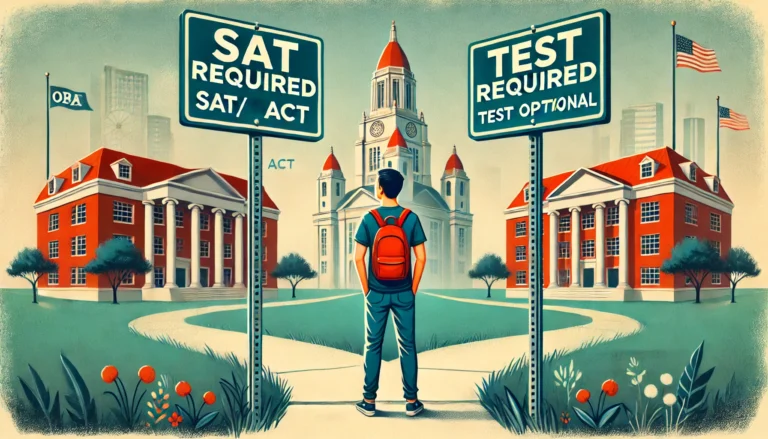Data Confirms the Value of Testing: Princeton Announces a Return to SAT/ACT Requirement
1. Introduction: Is This the End of the “Test-Optional” Era?
During the COVID-19 pandemic, the test-optional movement swept across U.S. college admissions. Dozens of universities made SAT or ACT scores optional, reshaping how applicants were evaluated. But this fall, Princeton University made a bold announcement that reverses that trend.
Why would one of the world’s most prestigious universities reinstate standardized testing? The answer lies in the data.
2. Key Insight #1: Data Shows Test Scores Predict Academic Success
Princeton’s decision is grounded in five years of internal data analysis. According to the university, students who submitted test scores consistently outperformed those who did not once enrolled at Princeton.
This was not a decision based on public pressure or reputation—it was rooted in measurable outcomes. Even at the height of the test-optional period, about 78% of applicants to the Class of 2029 voluntarily submitted scores, giving Princeton a large enough data pool to draw reliable conclusions.
The university explained:
“The decision to reinstate testing requirements follows a review of data from five years of test-optional admissions. These results show that students who submitted test scores achieved stronger academic outcomes at Princeton than those who did not.”
3. Key Insight #2: Following the Trend—But on Its Own Timeline
Princeton is not alone. Other Ivy League institutions such as Harvard, the University of Pennsylvania, and Brown have already announced a return to required standardized testing.
What makes Princeton’s move distinctive is its timing. Instead of implementing the change immediately (as other Ivies are doing for the 2024–25 or 2025–26 admissions cycles), Princeton will apply the requirement starting with the 2027–28 admissions cycle (the Class of 2032).
This means today’s high schoolers will be the first students required to submit SAT or ACT scores to Princeton. By announcing years in advance, Princeton aims to give families and schools ample time to adjust—an approach seen as more deliberate and transparent than the quicker rollouts at other institutions.
Meanwhile, Yale has adopted a test-flexible policy (accepting SAT, ACT, AP, or IB scores), and Columbia has chosen to remain permanently test-optional—illustrating that even within the Ivy League, policies are diverging.
4. Key Insight #3: “Required” Does Not Mean “Everything”
Reinstating test requirements does not mean test scores are the only factor that matters. Princeton emphasized that it remains committed to a holistic review of applicants. Standardized test scores will serve as one component among many.
The university made two specific points clear:
- No minimum score cutoff exists for admission.
- Active-duty military applicants who may have limited access to testing opportunities will not be penalized if unable to submit scores.
5. Conclusion: What This Means for the Future of Admissions
Princeton’s announcement signals an important shift: the large-scale experiment of test-optional admissions, born out of the pandemic, is giving way—at least at elite institutions—to a renewed recognition of the predictive value of standardized testing.
What does this mean for educational equity? And what will it mean for the high school students who will be the first to face these renewed requirements? Princeton’s decision leaves us with these deeper questions to consider.
Need Guidance?
If you’d like to discuss how these changes may affect your child’s college admissions strategy, please contact me. Together, we can create a tailored roadmap based on your student’s strengths and goals.
If you’d like personalized guidance, feel free to reach out:
📞 470.253.1004
Andy Lee
Elite Prep Suwanee powered by Elite Open School
1291 Old Peachtree Rd, NW #127
Suwanee, GA 30024
Website: eliteprep.com/suwanee
Email: andy.lee@eliteprep.com
Tel & Text: 470.253.1004
🎥 YouTube: @andyssamTV







